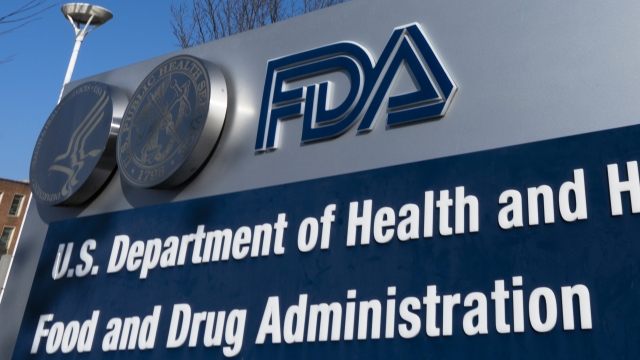The loophole is part of something called the 510(K) pathway. Researchers found it's led to a family tree of medical devices, recalled for potential patient harm — from IV tools in the hospital to a thermometer at home, the FDA began regulating medical devices in the '70s.
Today there’s thousands upon thousands of medical devices registered to the FDA. But in 2022 the number of recalled devices were the highest in the past two years, according to an industry report from Sedgwick.
Harvard MD candidate Kushal Kadakia explains that to get the FDA’s OK, devices must prove they’re safe and that they work.
"Were there issues upstream in the regulatory process that we could have fixed and maybe have prevented an unsafe device from being on the market," Kadakia said.
But something called the 510(K) Pathway allows devices to skip that proof of safety step if they can point to something called a "predicate:" a device the FDA previously green lit. The concerning part of the loophole is that even if that predicate was recalled, it can still count.
"There's a really prominent case actually related to transvaginal meshes that led to the harming of thousands of women. And it was authorized by the FDA in sort of a recalled predicate — as one might call it. So in this case, a rotten apple led to a bad apple, too," Kadakia said.
Kadakia and a team scraped through FDA records checking the most concerning "class one" recalls where the device could cause "serious adverse health consequences or death."
SEE MORE: Doctors Optimistic About Medical Breakthroughs For 2023
From 2017 to 2021, of the 510(K) authorized devices with that most serious recall, nearly half used a predicate that was recalled for safety — and it didn’t stop there.
"We found out even one more surprising thing, that device which had been authorized based on a flawed device and it ultimately been recalled, was often being used as a device to authorize the next generation of a device," said Dr. Harlan Krumholz, cardiologist and scientist at Yale University and Yale New Haven Hospital.
Cardiovascular, anesthesiology and general hospital devices were the most common. The list also included 16 life-support devices and 11 implantable devices.
"We had devices like infusion pumps, which are these automated devices that they use in the hospital to control the delivery of IV fluids, medications to patients. We had devices that were implantable like artificial shoulders," Kadakia said.
What does this mean for you, the patient? While such recalls were rare, Kadakia says they had a big impact: on average a recall consisted of 10,000 devices.
"So you can imagine, even if there are only 30 such class one recalls every year, the numbers can really pile up. And the biggest thing is that this is something that could have been a preventable risk factor," Kadakia said.
So that’s the problem — what’s the fix? The issue here lies with Congress, because the way the FDA must evaluate medical devices is written in law.
Trending stories at Scrippsnews.com



